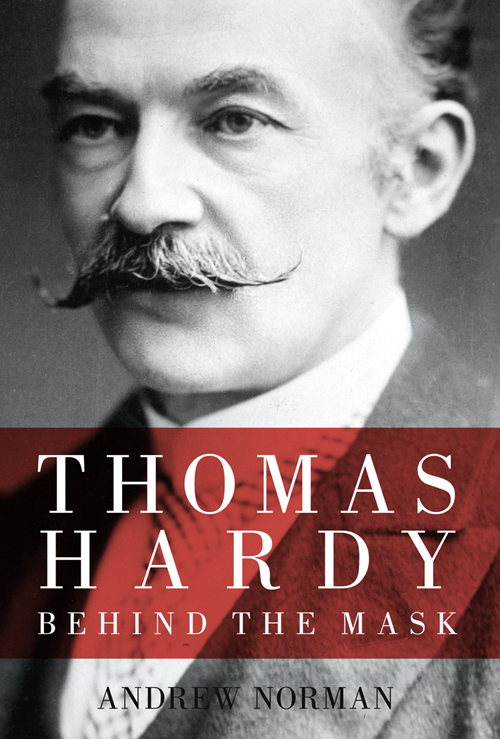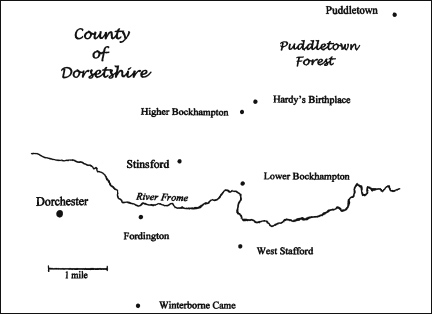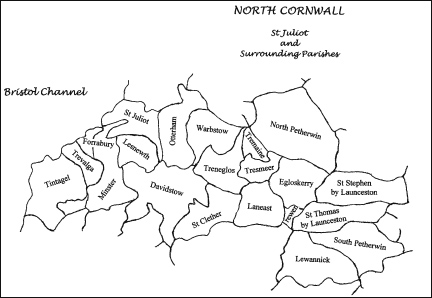Thomas Hardy


Other titles by the same author:
Tyneham: The Lost Village of Dorset
(Tiverton, Halsgrove, 2003)
Sir Francis Drake: Behind the Pirate’s Mask
(Tiverton, Halsgrove, 2004)
Dunshay: Reflections on a Dorset Manor House
(Tiverton, Halsgrove, 2004)
Enid Blyton and her Enchantment with Dorset
(Tiverton, Halsgrove, 2005)
Thomas Hardy: Christmas Carollings
(Tiverton, Halsgrove, 2005)
Agatha Christie: The Finished Portrait
(Stroud, The History Press, 2007)
Mugabe: Teacher, Revolutionary, Tyrant
(Stroud, The History Press, 2008)
The Story of George Loveless and the Tolpuddle Martyrs
(Tiverton, Halsgrove, 2008)
T.E. Lawrence: The Enigma Explained
(Stroud, The History Press, 2008)
Agatha Christie: The Pitkin Guide
(Andover, Pitkin Publishing, 2009)
Purbeck Personalities
(Tiverton, Halsgrove, 2009)
Arthur Conan Doyle: The Man Behind Sherlock Holmes
(Stroud, The History Press, 2009)
Father of the Blind: A Portrait of Sir Arthur Pearson
(Stroud, The History Press, 2009)
Jane Austen: An Unrequited Love
(Stroud, The History Press, 2009)
Hitler: Dictator or Puppet
(Barnsley, Pen & Sword Books, 2011)
BEHIND THE MASK
ANDREW NORMAN

He slid apart
Who had thought her heart
His own, and not aboard
A bark, sea-bound …
That night they found
Between them lay a sword.
From the poem
To a Sea Cliff
by Thomas Hardy
First published 2011
The History Press
The Mill, Brimscombe Port
Stroud, Gloucestershire,
GL
5 2
QG
This ebook edition first published in 2011
All rights reserved
© Andrew Norman, 2011
The right of Andrew Norman to be identified as the Author of this work has been asserted in accordance with the Copyrights, Designs and Patents Act 1988.
This ebook is copyright material and must not be copied, reproduced, transferred, distributed, leased, licensed or publicly performed or used in any way except as specifically permitted in writing by the publishers, as allowed under the terms and conditions under which it was purchased or as strictly permitted by applicable copyright law. Any unauthorised distribution or use of this text may be a direct infringement of the author’s and publisher’s rights, and those responsible may be liable in law accordingly.
EPUB ISBN
978 0 7524 6307 0
MOBI ISBN
978 0 7524 6308 7
Original typesetting by The History Press
2. Religion: Love: Crime: Punishment
9. Hardy Reveals Himself in Novels & Poems
12. The Troubled Lives of the Giffords
13. The Death of Emma: An Outpouring of Poetry
My interest in Thomas Hardy was aroused when I discovered a connection between my ancestors and the great Dorset novelist, poet and dramatist: that connection being the Moule family of Fordington.
Fordington, which lies on the outskirts of Dorchester – Dorset’s county town – is situated only 2 miles from Thomas Hardy’s family home at Higher Bockhampton. My paternal ancestors, who were yeoman farmers, lived here, and were baptised, married and buried at its parish church of St George, by the vicar, the Revd Henry Moule (1801–80). The Revd Moule’s son, Horatio Mosley Moule (known as Horace), was Hardy’s mentor and also his dearest friend.
Thomas Hardy was an immensely shy person, who surrounded his house, Max Gate, Dorchester, with a dense curtain of trees, shunned publicity and investigative reporters, and when visitors arrived unexpectedly, slipped quietly out of the back door of his house in order to avoid them. So that no one should penetrate this mask of shyness, Hardy kept a rigid control over what aspects of his life were to be divulged and what were not. His first wife, Emma, behaved in a similar way, at least as far as her and her husband’s letters to one another were concerned: she burnt all that she could lay her hands upon.
1
As for Hardy, following Emma’s death he burnt, page by page, a book-length manuscript of hers entitled
What I Think of My Husband
, together with most, but not all, of her diaries.
2
When Hardy’s second wife, Florence, wrote a so-called ‘biography’ of him, he retained control by dictating to her virtually the whole of the manuscript. When Hardy himself died in 1928, Florence destroyed a great deal more of his and Emma’s personal papers.
3
This begs the question, did Hardy have something to hide, a secret of some kind; and if so, is it possible, eight decades after his death, to discover what this secret was?
At first, this appears to be an impossible task, bearing in mind the vast quantity of ‘evidence’ which was deliberately destroyed by Hardy and his wives and others
4
during their lifetimes. Also, when Florence died in 1937, her executor, Irene Cooper Willis, destroyed ‘a mass of the first Mrs Hardy’s incoming correspondence that had sat undisturbed in her former attic retreat at Max Gate ever since her own death twenty-five years earlier’.
5
However, for a diligent researcher with an open mind, who is alive to the various clues to the conundrum which Hardy left behind, the task, as will shortly be seen, is not an impossible one.
For much of his adult life, Hardy laboured under a terrible burden of grief, the details of which he kept very much to himself. He required an outlet for this grief, a means of expressing his inner torment, and this outlet came through his writings. Hardy once told his friend, Edward Clodd, in respect of his novels, that ‘every superstition, custom, &c., described therein may be depended on as true records of the same – & not inventions of mine’.
6
What he did not tell Clodd, and what only a very few of his contemporaries managed to discern, was the phenomenal extent to which his own personal life was reflected both in his novels and in his poems. However, even in this he was hamstrung, in that he could not afford to be explicit – at least while Emma was alive – for fear of offending her.
The purpose of this book is to pierce the veil of secrecy which Hardy deliberately drew over his life; to decipher the coded messages which his writings contain; to find out why his life was so filled with anguish, an anguish which led to the creation, by him, of some of the finest novels and poems in the English language. Only then is it possible to discover the real Hardy; the man that lies behind the mask.
The journey is a fascinating one. It leads to Hardy’s former haunts, including his family home at Higher Bockhampton (he disliked it being called a cottage, preferring it to be called a house); to St Juliot in Cornwall, where he met and courted Emma, and to Dorchester County Museum, where many important artefacts associated with him – including the contents of his study – are to be found. It also leads, surprisingly, to various mental hospitals, known in those days as ‘lunatic asylums’, located in such places as London, Oxford and Cornwall.
I am grateful to the following:
Dr J. H. (Ian) Alexander; Elizabeth Boardman; Vanessa Bourguignon; Jane Bradley; Patricia Burdick; Mandy Caine; Brian Carpenter; Sue Cathcart; Kim Cooper; Caroline Cox; Helen Day; Mike Dowell; Dawn Dyer; Aidan Flood; Helen Gibson; Valerie Gill; Jennifer Hancock; Rachel Hancock; Pat Heron; Dr Jonathan Holmes; Vanda Inman; Renée Jackaman; Stephanie Jenkins; Basil Jose and family; Joanne Laing; Nuala LaVertue; Mark Lawrence; Hannah Lowery; Jasmine Metcalfe; Professor Michael Millgate; Jon Murden; Mike Nixon; Susan Old; Roy Overall; Eric H. Prior; Stephen Rench; Maureen Reynolds; Michael Richardson; Chris and Sally Searle (The Old Rectory, St Juliot, Boscastle, Cornwall); Reg Sheppard; Alan Simpson; Derick Skelly; Alison Spence; Judith Stinton; Lilian Swindall; Revd Robert S. Thewsey; David Thomas; Deborah Tritton; Toni Tuckwood; Jan Turner; Deborah Watson; David Williams; John Williams; Gwen Yarker.
Bodmin Town Museum; Bristol Reference Library; Bristol University Library: Special Collections; University of Bristol; The British Library; Colby Special Collections, Miller Library, Waterville, Maine, USA; Cornish Studies Library; Cornwall County Council; Cornwall Family History Society; Cornwall Record Office; Cornwall Studies Library; Dorchester Library; Dorset County Museum; Magdalene College, Cambridge; Oxfordshire Family History Society; Oxfordshire Health Archives; Oxfordshire Photographic Archive; Oxfordshire Record Office; Oxfordshire Studies Library; Oxfordshire Studies: Heritage & Arts; Plymouth Central Library; Plymouth and West Devon Record Office; Poole Central Library; Plymouth Central Library; Queens’ College, Cambridge; Redbridge Local Studies and Archives; Royal Geographical Society; Solicitors Regulation Authority; Thomas Hardy Society.
My thanks are also due to the Clarendon Press, Oxford; Cassell and Company Ltd, London; Mid-Northumberland Arts Group and Carcanet New Press; Oxford University Press; Macmillan Publishers Ltd; The Hogarth Press, London; David & Charles Ltd, London; MacGibbon & Kee, London; The Toucan Press, Guernsey; Longman Group Ltd; Colby College Press, Maine, USA.
A special mention is due to the enthusiastic and dedicated staff of the Cornwall Record Office, Devon Record Office, London Borough of Redbridge Local Studies and Archives, and Oxfordshire Health Archives.
I thank Professor Michael Millgate for his selfless generosity, and his diligence in preserving so much literature relating to Hardy which may well otherwise have been lost. I also thank my dear friend of many years, Dr Stuart C. Hannabuss, for his kindly words and valued criticism. And I am especially grateful, as always, to my beloved wife, Rachel, for her invaluable help and encouragement.

Bockhampton and district.

